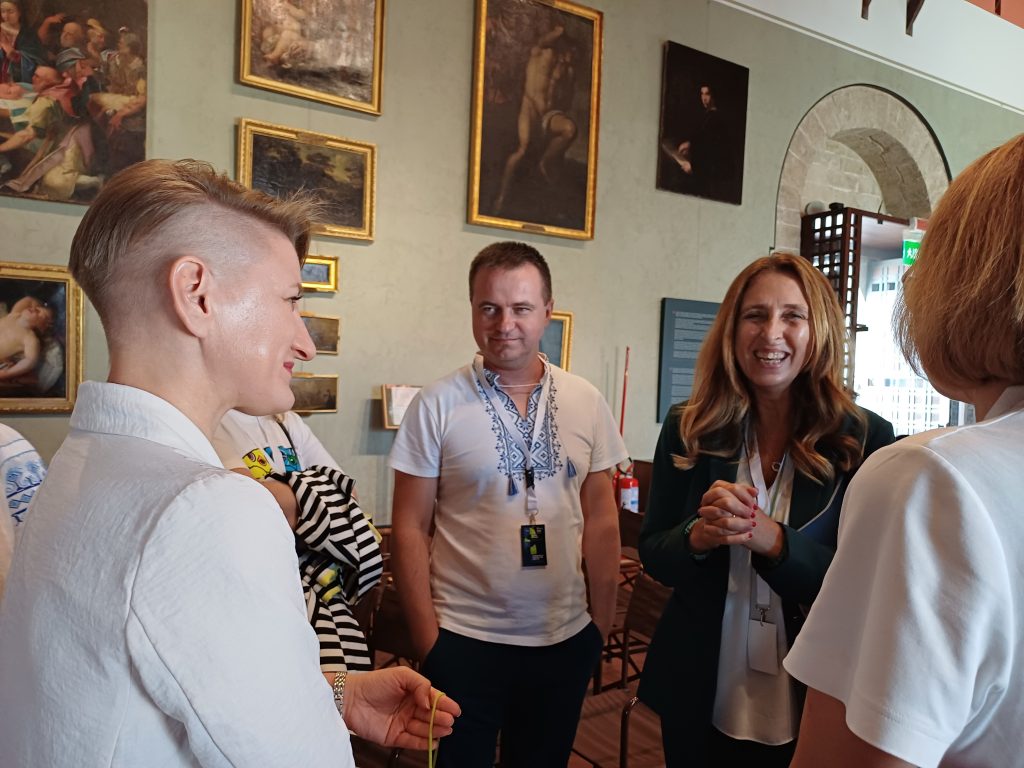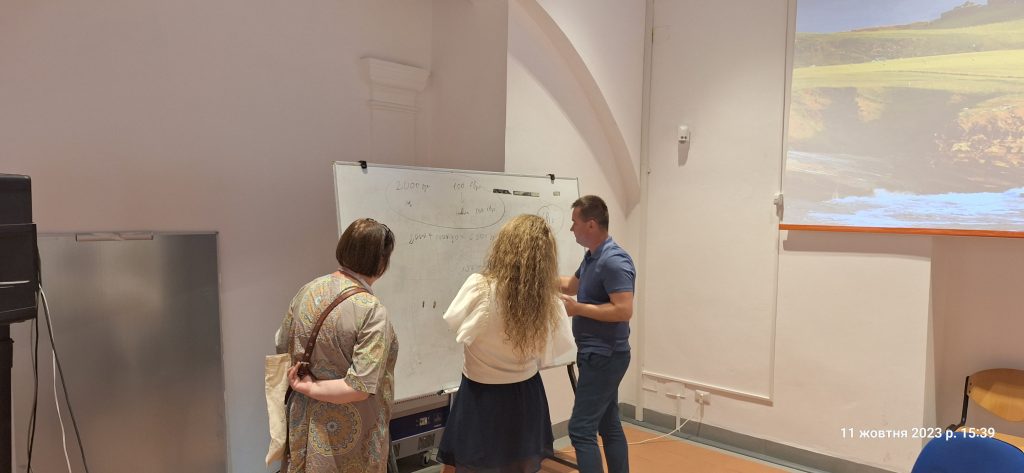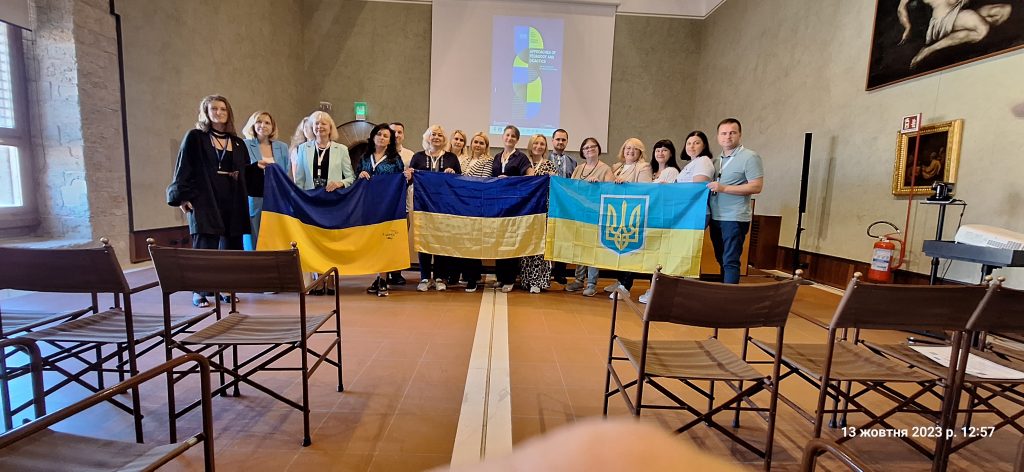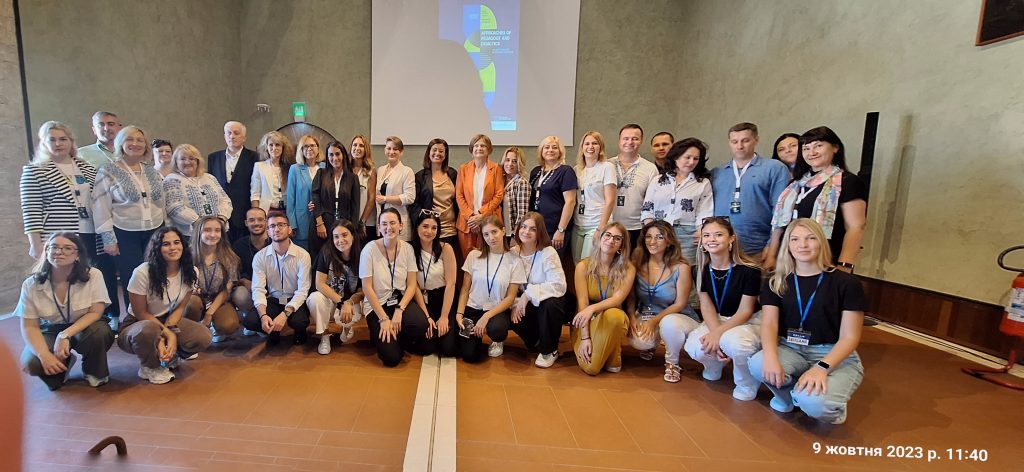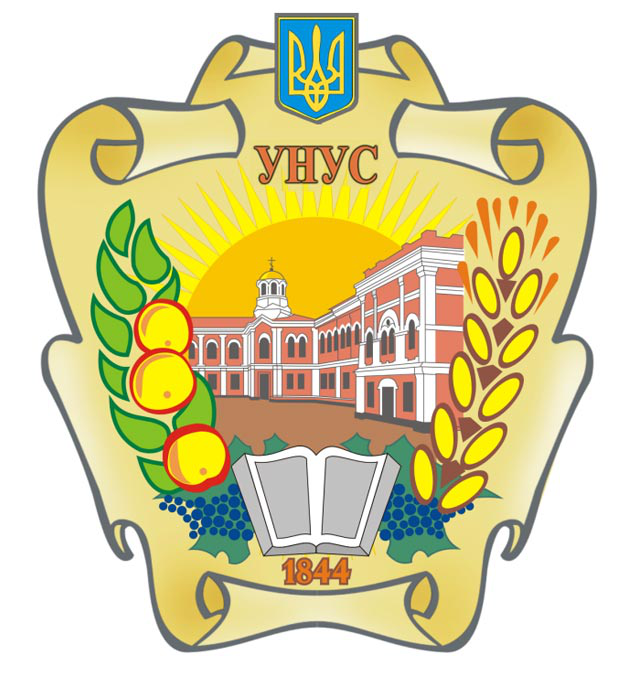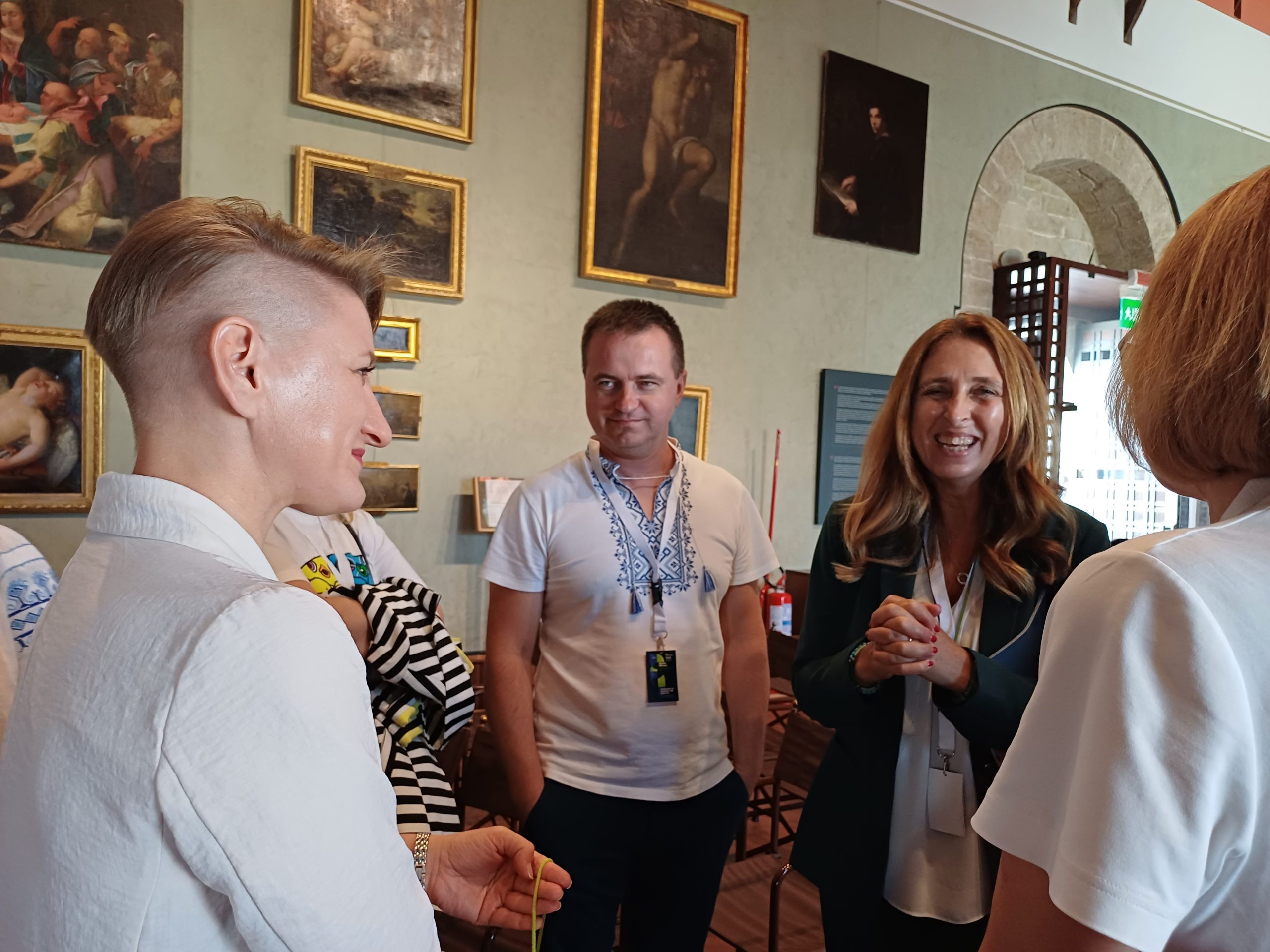
Study visit of the team of Uman National University of Horticulture to the University of Palermo within the framework of the DEFEP project
From October 9 to 13, 2023, the Ukrainian and Moldovan teams of the international DEFEP Erasmus+ Ka2 project “Distance education for future: best EU practices in response to the requests of modern higher education seekers and labor market” visited the University of Palermo. Vice-Rector for Scientific and Pedagogical Work, Doctor of Economics, Professor Mykhailo MALYOVANYI and specialist of the Education Quality Monitoring Department Mariia MALYOVANA took part in the visit from Uman National University of Horticulture.
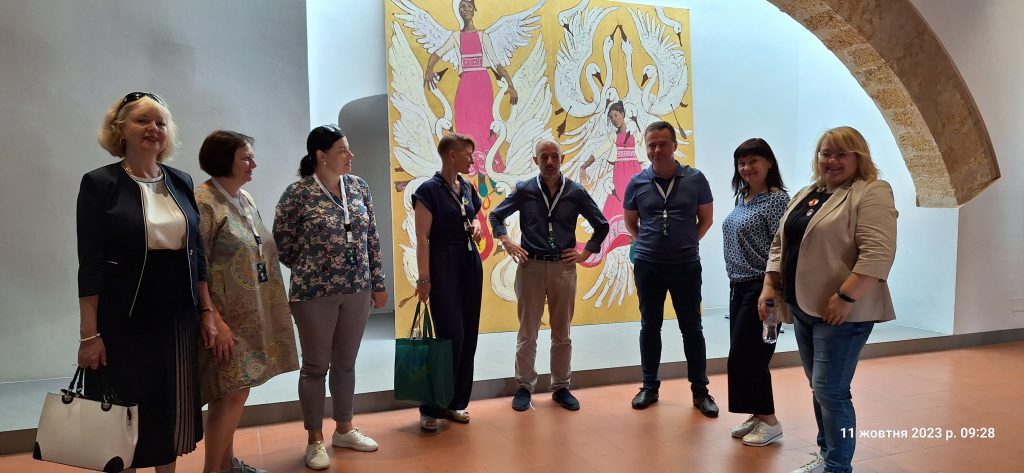
During the week, the meeting participants had the opportunity to learn about digital tools and practices that are successfully used in the educational process by the University of Palermo teachers. The event was held in the medieval palace Palazzo Chiaromonte-Steri. Massimo Midiri, Rector of the University of Palermo, welcomed the participants.
Luisa Amenta, Vice-Rector for Innovation at the University, introduced the participants to new approaches to student learning and teacher motivation in the context of digitalization of education.
Ignazio Vinci and Simona Mercantini shared their experience of using the FORTHEM digital platform.
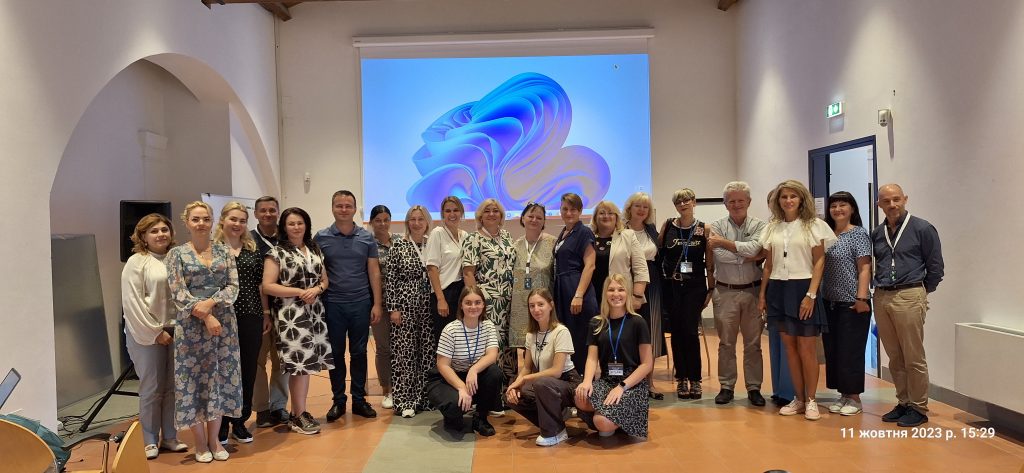
During the visit, the participants took part in the presentation of the online learning manual; got acquainted with the Digital Academy, which is a digital platform of the European University; visited classrooms and laboratories for online tests; got acquainted with software tools for organizing online learning: Moodle, OpenBadge, EduOpen (Mooc); learned about the peculiarities of the functioning of the master’s online programs “International Relations, Politics and Trade”, “Digital Humanities for the Cultural Industry”, “Electronics and Telecommunications Engineering”, “Management Engineering”; got acquainted with the experience of Italian colleagues in researching distance learning and its psychological impact on students.
Sincere thanks to the coordinator of the DEFEP UniPa project team Assunta Polizzi for organizing and conducting the event.
